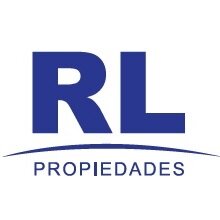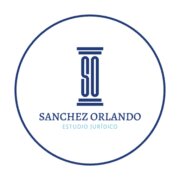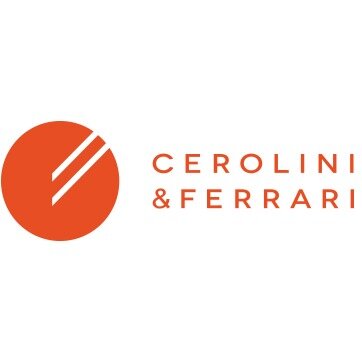Best Government Relations & Lobbying Lawyers in Argentina
Share your needs with us, get contacted by law firms.
Free. Takes 2 min.
Or refine your search by selecting a city:
List of the best lawyers in Argentina
About Government Relations & Lobbying Law in Argentina
Government Relations and Lobbying law in Argentina comprises the regulations and legal practices governing the interaction between private entities and the government. This area of law is crucial for ensuring transparency, accountability, and ethical behavior in influencing public policy and legislation. Argentina has gradually developed this legal field to address international standards and national needs, focusing on promoting open and responsible advocacy with public officials. Although there is no specific lobbying law enacted at the national level, Argentina adheres to several international anti-corruption treaties and has federal and provincial regulations affecting lobbying activities, which seek to balance influence with ethics.
Why You May Need a Lawyer
Engaging a lawyer specializing in Government Relations & Lobbying can be beneficial in numerous situations. You might need legal assistance if you or your organization are involved in activities that aim to influence government decisions, require compliance with lobbying disclosure laws, or face legal challenges related to lobbying activities. Legal experts can provide critical insights on navigating the complex regulatory landscape and ensure that lobbying efforts align with legal and ethical standards. Additionally, lawyers can assist in drafting contracts or agreements, provide strategic advice on government relations, and represent you in disputes or negotiations with government entities.
Local Laws Overview
Argentina's legal framework for Government Relations & Lobbying primarily functions on both a federal and provincial level. While a comprehensive national lobbying law has yet to be enacted, several regulations impact lobbying activities. The Anti-Corruption Office (Oficina Anticorrupción) plays a significant role in monitoring ethical conduct in public administration, aligned with international standards. Some local provinces have their disclosures and registration requirements for lobbyists. Understanding the nuances and requirements of these legislations, including conflict of interest laws and transparency principles, is essential for legal compliance and effective advocacy in Argentina.
Frequently Asked Questions
What constitutes lobbying in Argentina?
Lobbying typically involves having direct communications with public officials to influence government decision-making related to public policies, legislations, or regulations.
Are there specific registration requirements for lobbyists in Argentina?
While there's no national system for lobbyist registration, some provinces require lobbyists to register and disclose activities, particularly those with a high degree of interaction with public officials.
What ethical guidelines should lobbyists follow?
Lobbyists must adhere to ethical practices such as transparency in activities, presenting accurate information, avoiding conflicts of interest, and abiding by established codes of conduct.
How does the Anti-Corruption Office influence lobbying regulations?
The Anti-Corruption Office enforces transparency and anti-corruption measures to ensure that lobbying activities are conducted ethically and that conflicts of interest are disclosed and managed.
What are the consequences of illegal lobbying practices?
Illegal lobbying practices can result in penalties such as fines, legal action, loss of lobbying rights, and damage to reputation, depending on the severity of the violation.
Can non-citizens engage in lobbying in Argentina?
Yes, non-citizens can engage in lobbying, but they must comply with all relevant local laws and regulations, including registration and disclosure requirements if applicable.
How can lawyers assist with lobbying compliance?
Lawyers can help navigate complex legal requirements, provide advice on compliance, draft necessary documents, and ensure that lobbying strategies meet all legal and ethical standards.
Is there a difference between federal and provincial lobbying laws?
Yes, Argentina’s federal system means there may be variances in lobbying laws between federal and provincial levels, so understanding local laws is crucial.
Can lobbying activities be kept confidential?
While certain lobbying activities may remain confidential, transparency regulations often require disclosure of activities, financial transactions, and meetings with officials.
What should I do if accused of unethical lobbying?
If facing accusations of unethical lobbying, consulting a lawyer experienced in this field is essential for defense, compliance assessment, and mitigating reputational damage.
Additional Resources
In Argentina, numerous resources are available for those seeking more information on Government Relations & Lobbying. The Anti-Corruption Office provides guidelines and oversight of lobbying practices. Professional associations, such as the Argentine Chamber of Commerce and services specializing in public affairs, can offer guidance and support. Moreover, attending workshops, seminars, or webinars on lobbying laws, often organized by legal associations or academic institutions, can provide valuable insights.
Next Steps
If you need legal assistance in Government Relations & Lobbying, consider hiring a lawyer with specific expertise in this field. Start by researching and reaching out to legal professionals or law firms specializing in government relations. It may be helpful to gather all relevant documentation and outline your expectations and current challenges before consulting a lawyer. Additionally, keep informed about ongoing legislative developments and best practices within Argentina’s regulatory framework to facilitate compliance and proactive legal strategy.
Lawzana helps you find the best lawyers and law firms in Argentina through a curated and pre-screened list of qualified legal professionals. Our platform offers rankings and detailed profiles of attorneys and law firms, allowing you to compare based on practice areas, including Government Relations & Lobbying, experience, and client feedback.
Each profile includes a description of the firm's areas of practice, client reviews, team members and partners, year of establishment, spoken languages, office locations, contact information, social media presence, and any published articles or resources. Most firms on our platform speak English and are experienced in both local and international legal matters.
Get a quote from top-rated law firms in Argentina — quickly, securely, and without unnecessary hassle.
Disclaimer:
The information provided on this page is for general informational purposes only and does not constitute legal advice. While we strive to ensure the accuracy and relevance of the content, legal information may change over time, and interpretations of the law can vary. You should always consult with a qualified legal professional for advice specific to your situation.
We disclaim all liability for actions taken or not taken based on the content of this page. If you believe any information is incorrect or outdated, please contact us, and we will review and update it where appropriate.
Browse government relations & lobbying law firms by city in Argentina
Refine your search by selecting a city.















